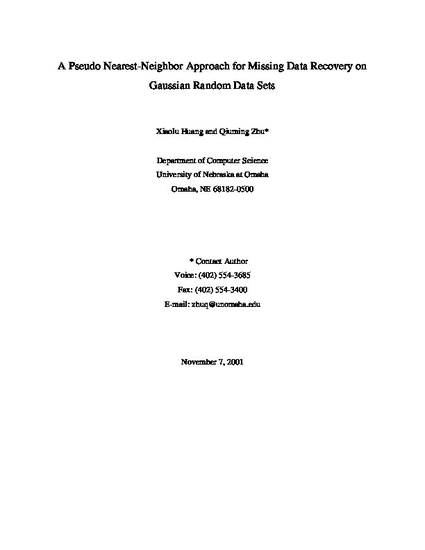
Missing data handling is an important preparation step for most data discrimination or mining tasks. Inappropriate treatment of missing data may cause large errors or false results. In this paper, we study the effect of a missing data recovery method, namely the pseudo- nearest neighbor substitution approach, on Gaussian distributed data sets that represent typical cases in data discrimination and data mining applications. The error rate of the proposed recovery method is evaluated by comparing the clustering results of the recovered data sets to the clustering results obtained on the originally complete data sets. The results are also compared with that obtained by applying two other missing data handling methods, the constant default value substitution and the missing data ignorance (non-substitution) methods. The experiment results provided a valuable insight to the improvement of the accuracy for data discrimination and knowledge discovery on large data sets containing missing values.
Available at: http://works.bepress.com/qiuming-zhu/3/

© 2002. This manuscript version is made available under the CC-BY-NC-ND 4.0 licensehttp://creativecommons.org/licenses/by-nc-nd/4.0/
The final published version of this article can be found here: http://www.sciencedirect.com/science/article/pii/S0167865502001253.